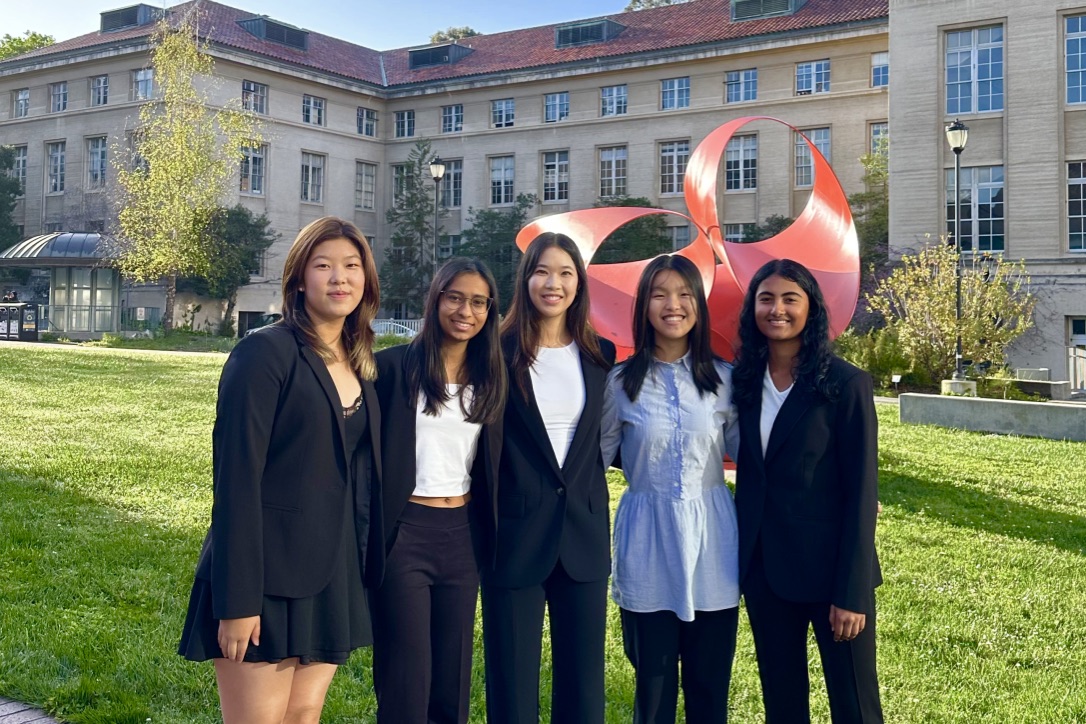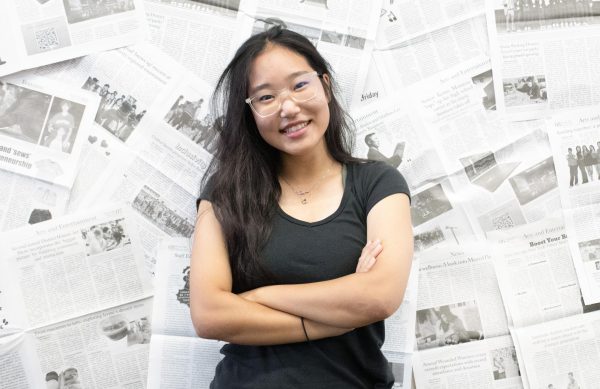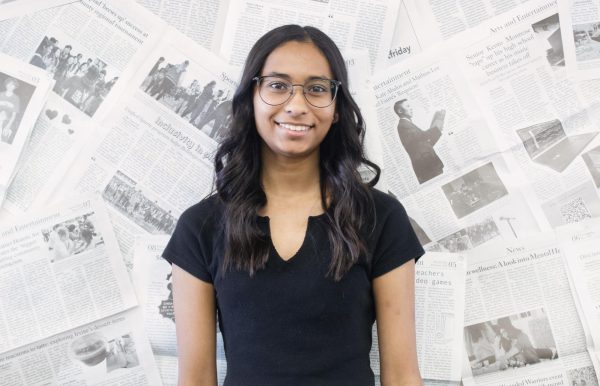Three teams from the Biomedical Engineering Society (BMES) participated in the BioEngineering State High School Competition (BioEHSC) and traveled to University of California, Berkeley (UC Berkeley) on April 6. Though they did not place, the contestants gained valuable research knowledge and firsthand experience in the medical field, according to biology competitor and sophomore Sarina Shah.
Students competing in BioEHSC selected an important medical problem in today’s society, then presented ways to mitigate the effects of these conditions through a research poster and presentation posing an engineering solution. This competition was different from other BMES events, as participating groups were paired with an undergraduate UC Berkeley student who guided the team throughout a seven month period of research.
“I think having a mentor who just has a higher level of education can help with a lot of unasked questions, especially if there isn’t that much research in your field,” Shah said. “It’s hard to find a solution and even if we found research, we didn’t know if it was true or not. So having that extra mentor helped verifying if information we found was correct.”
Along with collaborating with an experienced mentor, students considering medical or engineering majors also gained a taste of what professional research and studies look like in those fields. Being exposed to college life early helps students become more confident in pursuing the field, according to Shah.
Many competing students found it easier to approach the daunting task of conducting independent research when they knew their work would be seen by industry professionals, according to medical competitor and junior Reynard Wongso.
“I think BMES is making a really big impact because they’re really allowing students to get out there and put forth their ideas to people in Berkeley who can actually make a difference, or can easily make a difference with the resources they have,” Wongso said. “I think it’s really made my passion practical.”
Since BMES competitors are researching intricate topics ranging from Alzheimer’s disease to microfluidic devices, certain traits are necessary for success, according to BMES adviser and science teacher Christian Quinteros.
“They have to be okay with not knowing everything, that’s the point of it — to grow and be able to learn more about research,” Quinteros said. “Also, for the timid people, they need that confidence, where it’s like, ‘Oh, I did this thing, and it took me a whole year, but that’s what research is.’ You can’t do research in a day. It takes a very long process. It takes a community to do research.”
They are preparing for the same competition which will take place next year. Quinteros said he hopes the BMES club will foster confidence and intellectual curiosity in students, who will later translate their passion into higher education and the medical workforce.





